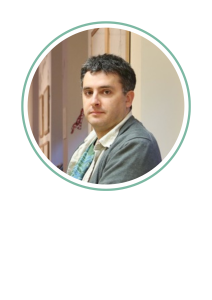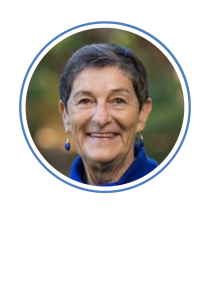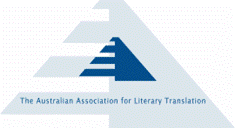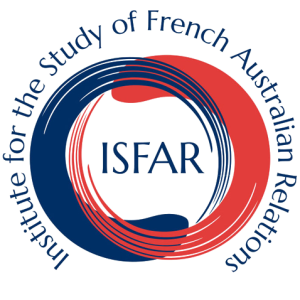Home » Articles posted by aalitraadmin
A CONVERSATION
Challenging Words:
A Conversation Between Translator & Author Daniel Hahn & Lilit Thwaites
| 📅Date: Thursday, 9 May 2024
⏰Time: 6:00 PM – 7:30 PM 📍 Venue: The Research Lounge, Level 5 Arts West, Room 552, University of Melbourne, Building 148B (directions here) |
|

Photo © John Lawrence, 2015 |
Daniel HAHN OBE is an award-winning writer, editor and translator with about a hundred books to his name. Recent books include Catching Fire: A Translation Diary, and translations of work by Gonçalo M. Tavares and Juan José Millás. He is a past chair of the Society of Authors (the writers’ union of the UK) and the Translators Association, and serves on the board of a number of organisations working with literature, literacy and free expression. He is one of the editors of the The Ultimate Book Guide, a series of reading guides for children and teenagers, and the author of Happiness Is a Watermelon on Your Head, a picture book for children. He is currently compiling a collection of Brazilian short stories, translating a Colombian classic and writing a book about Shakespeare. https://www.danielhahn.co.uk/ |
 |
Lilit Žekulin THWAITES is an award-winning Australian literary translator (Spanish>English), an Adjunct Professor in contemporary Spanish literature at La Trobe University, and current President of the Australian Association for Literary Translation (AALITRA). Her book translations include the bestselling The Librarian of Auschwitz, Australian Connection , and two futuristic novels by Rosa Montero, Tears in Rain, and Weight of the Heart. Her translations of short stories, essays and poetry have been published in journals and anthologies. She presents sessions at writers’ festivals, gives talks about Spain and translation, and helps organise visits to Australia by Spanish-speaking writers. She is currently translating Luisa Etxenike’s Cruzar el agua. In 2016, she received Spain’s Cross of the Order of Civil Merit for her promotion of Spain’s literatures and cultures in Australia. |
A FREE Event.
BIENNIAL AALITRA TRANSLATION AWARDS WILL BE HELD IN 2024
Stop Press!
The Biennal AALITRA TRANSLATION AWARDS will be held in 2024
Focus language: French
- $500 prize for Best Prose Translation (set piece)
- $500 prize for Best Poetry Translation (set piece)
- $250 prizes for runners-up in each category
Appel à candidatures
Prix de Traduction du PEN Club français édition 2024
Deadline: June 1st, 2024
For more information (in French): Appel à candidatures pour les Prix de Traduction du PEN Club français – 2024.
International Literary Translation and Creative Writing Summer School 2024
Applications are NOW OPEN for the online British Centre for Literary Translation Summer School 2024.
More info here
UNESCO City of Literature Residencies
Writers Victoria
Often, writers dream of spending time overseas, focused on creative work, but don’t quite know how to make this happen. Many UNESCO Cities of Literature, however, offer funded residencies for writers and translators from other Cities of Literature, including Melbourne, through which you can develop your own work whilst meeting writers and readers from your host city. In this panel, writers Shu-Ling Chua, Ronnie Scott and Oslo Davis will share their experiences of these residencies, and tips on crafting strong applications, while Damjan Zorc, Coordinator at Ljubljana City of Literature, will offer insight from a residency organiser’s perspective.
This seminar will take place online and will be recorded, with the recording sent to registered participants afterward. Detailed instructions for participation will be provided in the week preceding the event.
More info here.
AALITRA Review Issue 19 Released
Check out the latest AALITRA Review, edited by Lola Sundin and Eliza Nicoll.
https://ojs.latrobe.edu.au/ojs/index.php/AALITRA/issue/view/95
Languages & Cultures Network for Australian Universities (LCNAU) Researchers Database
Please see the link to the LCNAU database below:
https://docs.google.com/document/d/1Mu5WaAooAe1CTj5hjp3gbw-vau1QCyqjTkld3_Eu0KM/edit
Translating Poetry Symposium with CO.AS.IT September 28 3-6pm
AALITRA, in association with CO.AS.IT., presents
TRANSLATING POETRY: A SYMPOSIUM
CO.AS.IT., 199 Faraday Street, Carlton
Thursday 28 September 2023, 3-6pm
Free event offered in person and in Zoom mode
Registration essential here
Zoom link:
Topic: AALITRA Symposium
Time: Sep 28, 2023 03:00 PM Canberra, Melbourne, Sydney
Join Zoom Meeting
https://us06web.zoom.us/j/87806929997?pwd=eFhwOFpLUWZjRDdJM3hxQzlWNWtGUT09
Robert Frost is credited with the saying ‘Poetry is what gets lost in translation.’
But what if it was more accurate to say: ‘The poetry in a poem is what gets
saved (or even strengthened) in a good translation’?
Peter Boyle – Translating a poem into a poem
Stephen Nagle – Translating mood: Rilke, The Heartfelt,
and Celan, The Conscience of the Damned
Judith Bishop – Translating poetry-in-prose:
the case of Philippe Jaccottet
ABSTRACTS
Peter Boyle
Translating a poem into a poem
Robert Frost is credited with the saying “Poetry is what gets lost in translation.” But what if it was more accurate to say: “The poetry in a poem is what gets saved (or even strengthened) in a good translation”?
By the “poetry in a poem” I don’t mean the fact that it rhymes or is in alexandrines or has a lot of alliteration or clever word play. When we value a poem it isn’t just because of stylistic features or the poem’s paraphrasable message, if it has one. What counts, the poetry in the poem, is the unity of emotion, sound, rhythm, breath, a stance towards the world, the way it embodies a personality, and the lure of a meaning that always slightly escapes us. A poem is like a journey through a musical structure where emotion and thought are unified in a way that strikes us as both true and new, irreducible to what we’ve heard said before.
So what is it that a translator seeks to hold on to when translating a poem? I would argue it is the translator’s intuition of what is most valuable in the specific poem, the unique poetry it alone offers, and the way the poem, as an art object, unfolds in time. Crucial to this task is finding an equivalent in a different language for the tone of voice, the imprinted personality, of the original poet, their stance towards the world.
In this talk I will explore these ideas by reflecting on my experience of translating three very different poets — the Venezuelan Eugenio Montejo, the Cuban poet José Kozer and French poet René Char.
Stephen Nagle
Translating mood: Rilke, The Heartfelt, and Celan, The Conscience of the Damned
Both Rainer Maria Rilke (1875-1926) and Paul Celan (1920-1970) grew up in cultured enclaves where high German was the language of philosophy and poetry, but not the language of the street. Rilke was born into the Prague of the Austro-Hungarian empire, and Celan the long standing Jewish community of Czernowitz, Romania – a place where “people and books used to live”, said Celan. Rilke was a gifted poet and a social butterfly. Celan was witness to the Holocaust and challenged immediate post-war German intellectuals to take responsibility.
Judith Bishop
Translating poetry-in-prose: the case of Philippe Jaccottet
Philippe Jaccottet’s Truinas, le 21 avril 2001 was published by La Dogana in 2004, after a three-year struggle to complete the work. In this short book, Jaccottet describes the burial of his close friend, the contemporary poet and fellow admirer of Friedrich Hölderlin, André du Bouchet. Truinas was translated independently by John Taylor (Les Brouzils, 2018) and myself (unpublished, 2006). The sinuous lines of Jaccottet’s poetry-in-prose make the act of translation feel like an undulating and rather risky flight. Despite Jaccottet’s despairing assessment of the work, it bears all the technical hallmarks of his most exquisite poetry. Linguistically, there is the expert deployment of syntactic rhythm, semantic association and lexical choice, while prosodically, there is the building and release of tension through the devices of white space, dashes, asides, inverted commas, colons and ellipses. I will consider key differences in the translation of a central passage with reference to these aspects of Jaccottet’s art.
BIOS
Dr Judith Bishop is the author of two award-winning poetry collections, Event (Salt, 2007) and Interval (UQP, 2018). A third collection, Circadia, is forthcoming from UQP in 2024. In 1995 Judith completed an MPhil in European Literature at the University of Cambridge with a focus on post-World War II French poetry.
Peter Boyle is a distinguished Australian poet and translator of poetry from Spanish and French. He has ten books of poetry published and eight books as a translator. His most recent poetry collections are Ideas of Travel and Notes Towards the Dreambook of Endings.
As a translator his books include Anima by Cuban poet José Kozer, The Trees: Selected Poems of Eugenio Montejo and Three Poets: Olga Orozco, Marosa Di Giorgio and Jorge Palma. A bilingual Selected Poems of José Kozer is due out this year from Puncher and Wattmann. His translations of French poets René Char, Pierre Reverdy and Max Jacob have appeared in journals and anthologies in the US. In 2013 he was awarded the New South Wales Premier’s Award for Literary Translation.
Stephen Nagle lived in Germany and Switzerland in the 70’s and 80’s. He worked as a language teacher and technical and medical translator in Hamburg, then West Germany. More recently he has taken to poetry and translating Rilke and Celan from German to English. He has a NAATI Level 3 certification.
OPEN CALL TO TRANSLATORS: THE WHITE REVIEW TRANSLATION ANTHOLOGY
AN OPEN CALL TO TRANSLATORS: THE WHITE REVIEW TRANSLATION ANTHOLOGY
THE WHITE REVIEW is delighted to announce that we will be publishing an anthology of writing in translation. The book will celebrate the important work of translators, and bring innovative and exciting writing to Anglophone readers. Submissions free and open from July 31-Sept 10.
For further info, go to: https://www.thewhitereview.org/news_and_events/the-white-review-translation-anthology/


